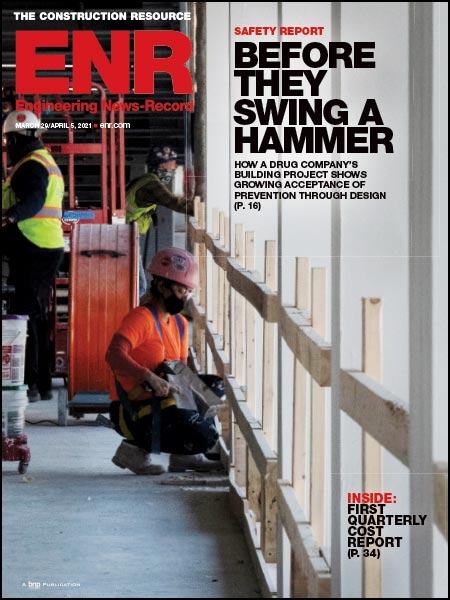Contractors must also include more details about their experience and qualifications in their permit applications, in addition to a detailed schedule of work and proof of insurance. Job site changes include stepped-up L&I inspections and safety reviews.
In October, Mayor Michael A. Nutter (D) established a special independent advisory commission charged with taking an “in-depth and independent look” at the licensing department’s past and current operations, as well as the June 5 collapse.
The commission, which includes representatives of the construction industry, labor unions, legal profession and academia, as well as the City, is expected to submit its findings by July 1.
“Until that time, we are not to privy to the Commission's work nor are we commenting on it,” says department spokesperson Rebecca Swanson. The department and the city "continue to fully cooperate with all ongoing investigations into the construction accident and subsequent building collapse, she adds.
Meanwhile, the Philadelphia city council conducted its own report on oversight of the city’s demolition practices and procedures, identifying more than 70 recommendations for legislative, procedural and operational changes.
A five-bill package to change city codes was introduced that calls for all city building inspectors, construction plan reviewers and their supervisors to complete OSHA’s 30-hour training program, with one in five required to have OSHA 500 certification. Contractors would also need the 30-hour training in order to obtain a city demolition license.
Other steps include a “licensed site safety monitor” to be at every construction or demolition site, with contractors required to keep a daily log of the monitor’s attendance for submission to the licensing department.
Detailed site safety plans would have to be submitted to the city before any construction or demolition projects could begin, subject to review by inspectors. Philadelphia’s Fire Dept. would have the authority to issue stop-work orders whenever it deemed a construction or demolition site unsafe.
Despite concerns from some city council members and contractors regarding the scale and potential cost of the new regulations, the legislation moved swiftly toward final approval before stalling in late November due to inconsistencies with Pennsylvania’s Uniform Construction Code.
Supporters claim the discrepancies are minor and will be resolved in time for the proposed changes to be voted on in January.



Post a comment to this article
Report Abusive Comment